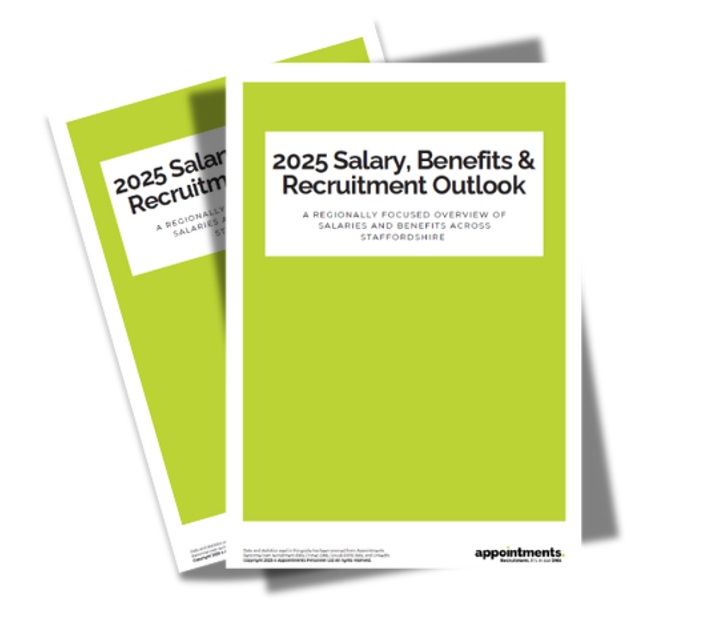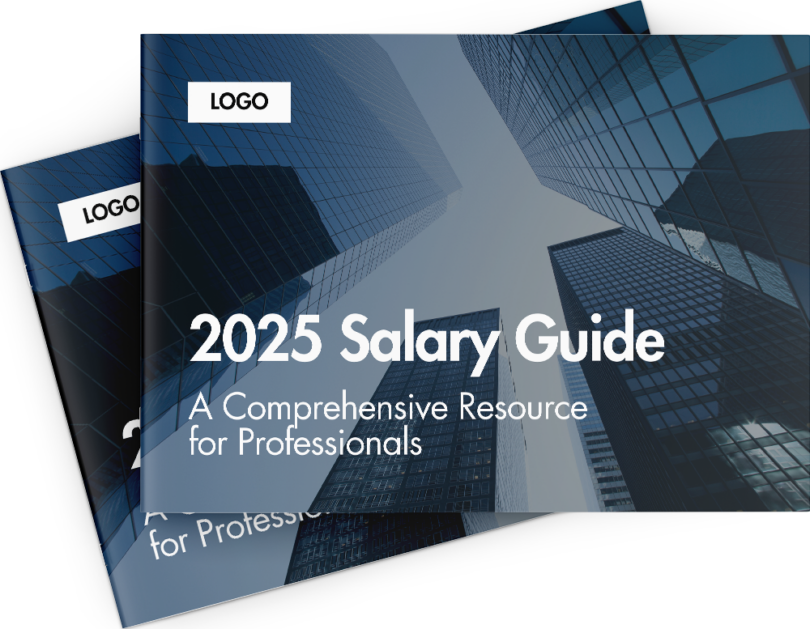
Share Article
How to attract top accounting and finance candidates to your business
CFO’s in the UK’s top accounting and finance firms are reporting that they are finding it difficult to source professionals with the requisite skills!
The problem in finding skilled accounting and finance professionals is due to high demand and a limited supply. With jobs in the finance industry expected to grow by 10% by 2026, it’s more important than ever that financial recruiters know how to find and hire talent in today’s competitive hiring market.
Shortages of Skills in Accountancy and Finance
Fact: 75% of C-Suite Executives in the accounting and financial services sector are concerned about shortages of skills within the industry.
In this guide we aim to break down the key recruiting challenges and share tips and tricks to help with your hunt for great hires. So, with that in mind let first look at the main pain points faced by accounting and financial CEO’s…
What are your challenges?
Every industry encounters its reasonable share of obstacles when hiring new candidates, but accounting and finance services take it to a whole new level! From ever-evolving technology continuously changing business needs and having to find people with niche skills combined with intense competition from both “fintech” (financial technology) companies and other sectors entirely, it’s no wonder recruiters struggle with accounting and finance services recruiting.
Here are a few of the top difficulties that firms are currently confronting when searching for accounting and financial professionals…
Shortage of suitable candidates:
76% of accountancy and finance employers said their top challenge in recruiting is a shortage of suitable applicants. Skill remains in short supply, and this has been the case for some time. Due to this, stand out accounting and finance candidates are increasingly hard to discover, and even tougher to keep!
Lacking the right specialty skills for accounting and finance:
Companies recruiting for accounting and finance staff set a high standard and they are not searching for just number crunchers; they require individuals with expert skills to ensure their demands are fulfilled. Nonetheless, individuals in this specific niche are tough to find with a scarcity of candidates on the market.
Fierce competition for accountancy and finance talent:
It’s not beyond the realms of possibility that your business is competing with lots of other sectors for great skills – especially with so many young workers pursuing roles in tech over financing. Competing against firms throughout several industries makes financial services hiring more difficult than in the past.
Rapid digital transformation in the financial services sector:
Technology continues to evolve in brand-new and unexpected ways that can transform the accounting and financial services industry in a short space of time, so when searching to fill vacancies it is important to ensure the relevant candidate has the baseline skills but also the ability and mindset to roll with the winds of change in a field facing continuous challenges.
As you are more than aware, financial services recruitment is very particular. It comes with a one-of-a-kind set of challenges and specific needs that make it tough to discover the right people (with the appropriate skills). So, when recruiting in the accounting and financial services market, your recruitment techniques must be on point to land the most effective prospects. We understand the process and will set you on the right path by telling you the ideal steps to take?
Here are our top ten accounting and financial recruitment tips…
#1: Enhance your company branding
Investing in your company brand name is essential if you intend to contend for skilled individuals and stand out in the finance field. Research exactly how your prospective prospects perceive your brand name as well as what they truly wish to know. Recognise just how it varies from what you’re showing them. See what you can do to change their assumptions and ultimately attract more candidates.
Bear in mind that you’re taking on young fintech companies that likely have an enjoyable, engaging employer brand. To really be competitive, you’ll need to market your firm in a way that reaches your perfect prospects. Besides, it is important to remember employment IS advertising and marketing.
#2: Use recruitment marketing strategies
Recruitment doesn’t stop with building your employer brand. You should concentrate on targeted techniques to develop a large pool of certified candidates for current as well as future employment vacancies and opportunities.
Using recruitment marketing strategies is a fool proof way to attract interested job hunters, but to do it efficiently, you need to be creative and think outside the box to be successful in reaching prospects. Providing them with relevant electronic material and engaging employment campaigns is an excellent way to obtain and maintain their attention.
You can also make use of electronic devices like programmatic job advertising (think of this as recruitment “bots”) to assist you in getting your vacancies in front of the right people. This will help you target preferred prospects that have the accurate abilities the work needs.
Fact: 24% of organizations in the financial services sector use changing brand perception through marketing and advertising as a strategy to access digital talent to a large extent.
#3: Broaden your sourcing methods
To locate the most effective financial services specialists available, you need to be looking in all the appropriate locations. That’s why expanding your sourcing methods is a great way to start, however this can be simpler said than done.
Make certain to advertise your openings in as many relevant places as feasible, such as social media websites and online job boards. You can also upload roles and try to source individuals via LinkedIn.
Tap into as many diverse sources for candidates as possible. College and university graduation fairs as well as other recruiting events are a great method to get out in the area and meet entry-level candidates. If you’re struggling, there are several hiring software options available that can improve your initiatives and make your work less complicated.
#4: Have a graduate employment strategy in place
Companies in the financial solutions sector are among the biggest companies of entry-level candidates. That’s why most financial employers currently have some sort of graduate employment method to discover new graduates that are just entering the workforce.
While that alone is an excellent beginning, it’s not enough to be competitive in such a congested job market, let alone to maintain momentum once you bring them onboard. Have a procedure in place for hiring university graduates, however, do not stop at just hiring them.
Make a continual effort to refine their skills and nurture them into future leaders that will certainly propel your company forward. As Richard Branson famously said, “Train people well enough so they can leave, treat them well enough, so they don’t want to.”
#5: Apply inclusive recruitment principles
It’s obvious that the finance industry struggles with diversity. A recent study indicated that less than a quarter of individuals know that their employers are actively attempting to hire more females and individuals from minority groups. While finance businesses are gradually advancing in recruiting even more varied candidates, many are still failing – so there’s still room for improvement.
There are a lot of different methods you can use to improve your inclusive employment endeavours. For example, try writing comprehensive job advertisements to bring in varied candidates and use concepts of blind hiring to remove unconscious bias. Make it a point to work with employees based on skills and qualifications to guarantee they’re closely aligned with what you’re seeking.
It’s important to remember to share your initiatives with existing and prospective employees, this will be of benefit to your inclusion and diversity policies as you expand your workforce. Finance organisations are working on raising diversity within their workforce, nonetheless, there is still a long way to go.
Fact: 68% of Millennials in the financial sector said that while companies talk about diversity, they felt that opportunities weren’t equal for all.
Fact: 38% Financial services organizations communicate their diversity strategy and diverse employees via their social media channels.
#6: Develop a corporate alumni network
Recruitment isn’t all about young employees and graduates, there should be just as strong a focus on hiring mid-career professionals. Lots of former workers left the industry during the economic downturn and never came back out of concern of history repeating itself. But why burn a bridge that doesn’t need to be burned?
It is an excellent idea to keep in touch with talented professionals with a view to developing a corporate alumni network that allows you to reach former employees who left under favourable circumstances. Take into consideration producing a networking group on LinkedIn or Facebook that you can make use of to communicate with former staff that may become rehires.
#7: Job growth and EVP (employee value proposition)
Finding and hiring the right people is great for your business, but what do you do with them when they start work? You need to have a proper continuous professional development programme that works for you, your new employees and your existing workforce.
A well-functioning development programme is the baseline of your firm’s employee value proposition (EVP) is an excellent way to demonstrate your commitment to helping staff members expand their roles and grow their careers. Keep in mind that it’s not enough just to have comprehensive recruitment methods in place, you need to equip your team to prosper by supplying the right devices, resources, as well as chances to drive their professional development. Your dedication to developing an inclusive workplace needs to be an indispensable part of your company ideology.
#8: Connect via email and social media sites
With many electronic tools readily available to us, it only makes good sense to use them for hiring initiatives. Connecting with job prospects via email and social media platforms is a very efficient way to get to applicants, specifically the younger generations.
Social networking platforms like LinkedIn, Facebook, Instagram as well as Twitter are wonderful spaces to connect with prospects. In fact, a LinkedIn study discovered that 49% of professionals are connecting with companies on social media networks primarily to amplify their job seeking efforts. So why not reach them where they’re already proactively looking?
Fact: JP Morgan took their social media recruiting further and used Snapchat to bring in entry-level prospects. Their geofilters’ campaign garnered 3.1 million views and the whole recruitment campaign had over 17.5 million views!
#9: Beginning an employee referral programme
Employee referrals are a superb way to reach new hires. This technique reduces the time required to fill a vacancy as you’re not spending resources on sourcing the candidates. At the same time, you’ll acquire brand-new employees that currently connect well with your existing group as well as the company culture, so a win-win overall!
Finally, and most importantly…
#10: There can be no questioning the fact that hiring within the field of finance is hard
Talent is limited and competition is tough. That’s why you must be positive with your recruitment methods to attract the most effective candidates for finance duties. Everything begins with revealing to them what your organisation means when hiring both graduates as well as seasoned professionals. But if you feel that this is either something you do not have the relevant skills for or basically do not have the time for, you are already juggling to many tasks, then the answer is simple… leave it to the professionals, like us. When you do that, everything will fall seamlessly into place and will be hiring superstar employees in no time at all.
We know what financial execs in small and medium enterprises are looking for, we have our finger on the pulse of everything relating to recruitment within the Staffordshire and Cheshire area – so get in touch with us on 01782 338787 or contacts@appointmentspersonnel.co.uk and we can make a start on finding the financial talent you need.
* Fact Source: PricewaterhouseCoopers https://www.pwc.co.uk










